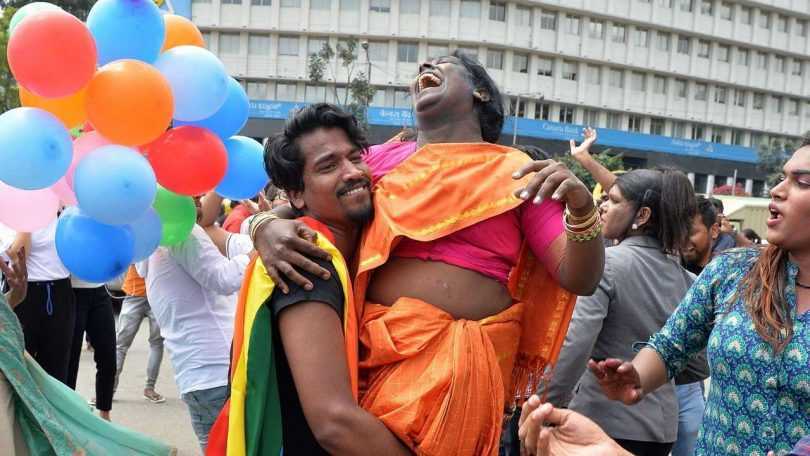SC Decision on section 377: The five-member bench of Supreme Court on Thursday unanimously rejected the section 377 of the 158-year-old Indian Penal Code (IPC) under which it was a crime to create unnatural sex with mutual consent. The court said that this provision violates the rights of equality (equality) given by the Constitution. The Constitution Bench headed by Chief Justice of India (CJI) Deepak Mishra has said that the section 377, which has been kept under the ambit of unnatural sexual relations established by mutual consent, is not irrational, sheer arbitrary and defensive. The Supreme Court said “sexual preference is biological and natural. Intimacy and privacy is anyone’s personal choice. The state should not occupy in this matter. The court said that any kind of discrimination is a violation of fundamental rights. Section 377 violates Article 14 of the Right to the Constitution.
The court said that as far as mutual consent is concerned about unnatural sex, it is neither harmful nor contagious for the society. The Bench has given four different but, mutually agreed decisions. In this verdict, the apex court rejected its own decision in the Suresh Kaushal Case in 2013. In the case of Suresh Kaushal, the apex court had earlier included gay sex in the category of crime again. Section 377 has been used as a weapon against members of the LGBTQ community, which was discriminated. Justice Indu Malhotra said in his separate judgment that history must be apologized to the members of the community for their deprivation and forcing them to live life with fear.
The Bench announced the ruling on classical dancer Navtej Johar, journalists Sunil Mehra, Chef Ritu Dalmia, Hotel businessman Aman Nath and Keshav Suri, businessman Ayesha Kapoor and petitions of 20 former and current students of IIT. They all challenged the Constitutional validity of Section 377, asking for two adults to keep gay sex out of the purview of mutual consent and to keep out of the scope of the crime. The issue of gay sex was first raised by the NGO Foundation in the Delhi High Court in 2001.
In 2009 judgment, the High Court declared the provisions of section 37 illegal and excluded such relationships from the scope of the crime. The High Court’s verdict was overturned by the Supreme Court in 2013. After this, the apex court also rejected the petition filed for reconsideration of its decision. However, the corrective petitions filed on this decision in the top court are still pending. The petition filed in the court was opposed by the Apostolic Alliance of Churches and the Utkal Christian Association and other non-governmental organizations and Suresh Kaushal, among others.


Leave a Comment